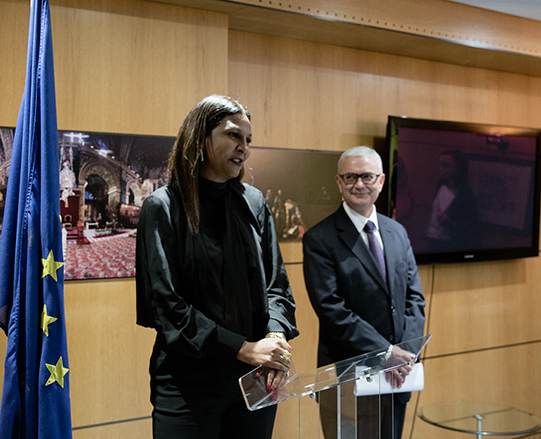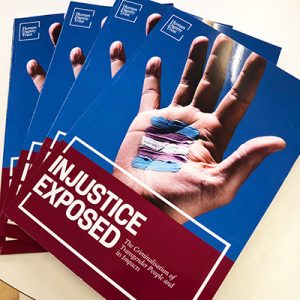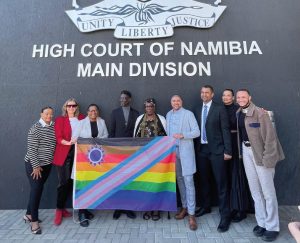Discriminatory sexual offence laws, most of which originate in 19th century colonial penal codes, continue to blight the lives of millions of Commonwealth citizens. They criminalise human rights protected conduct and yet fail to adequately criminalise all forms of sexual violence or to protect survivors of such violence. These laws foster and enable violence and discrimination, and they are at odds with international and regional human rights norms and domestic constitutional law. They particularly affect women and girls and LGBT people and undermine the health and prosperity of entire societies.
For example, many Commonwealth countries have different ages of consent for sexual relations for males and females, some of which are very low. Rape provisions often provide no protection for male rape or rape with objects, and marital rape is not a criminal offence in half of Commonwealth countries. There are over 60 countries globally, half of which are in the Commonwealth, that have laws that criminalise consensual same-sex sexual activity. Likewise, about half of Commonwealth countries refer to persons with disabilities as ‘idiots’, ‘imbeciles’, ‘subnormal’ or ‘defective’ in the context of sexual crime.
These laws were wrong then, and they are wrong now. I deeply regret both the fact that such laws were introduced, and the legacy of discrimination, violence and even death that persists today.
(CW: The following film contains mentions of physical and sexual violence and abuse which some viewers may find distressing and/or traumatic.)
The law plays a central role in ensuring equality and human dignity for all, regardless of sex, gender, sexual orientation or gender identity. Leveraging global legal expertise and experience is vital to support governments to pursue law reform to end discrimination and violence.
In contrast with widespread discriminatory sexual offence laws, very few Commonwealth countries have legislation to recognise, prevent and punish hate crimes including those committed on the basis of sexual orientation or gender identity.
(CW: The following film contains scenes of physical violence and mention of abuse and sexual violence against LGBT people which some viewers may find distressing and/or traumatic.)
Since 2015, the Trust has been analysing the need and options for wholesale legislative reform of sexual offence laws that criminalise, discriminate against or fail to protect LGBT people, women, children and other marginalised groups. We provide technical assistance upon request to governments seeking to reform such laws, and to enact protective legislation.
We provide this support this through legal research and tools, country and thematic policy papers, technical legal assistance with legislative drafting, consultation mechanisms and related legal processes, and complementary technical assistance with media and communications strategies around law reform.
At the request of senior government officials in partner countries and with assistance from our Commonwealth Group of Experts, we have worked on law reform in Commonwealth countries in both the Caribbean and Africa, including to reform sexual offence legislation and to develop anti-discrimination and hate crime laws.
We commend those government officials who are showing leadership in proactively reviewing and reforming discriminatory laws and seeking to better protect marginalised populations.




